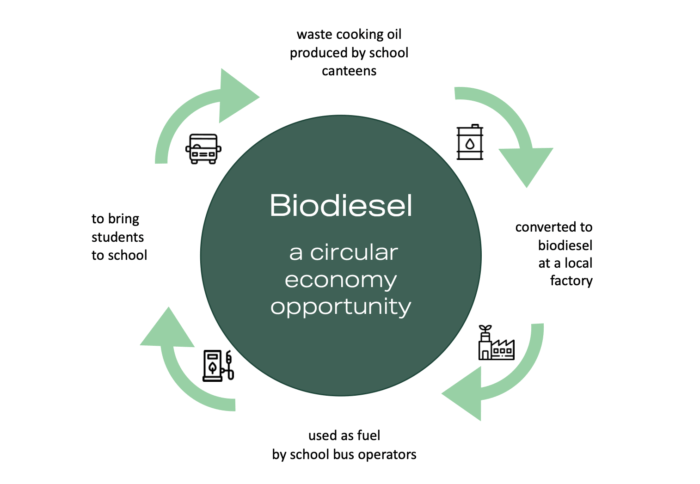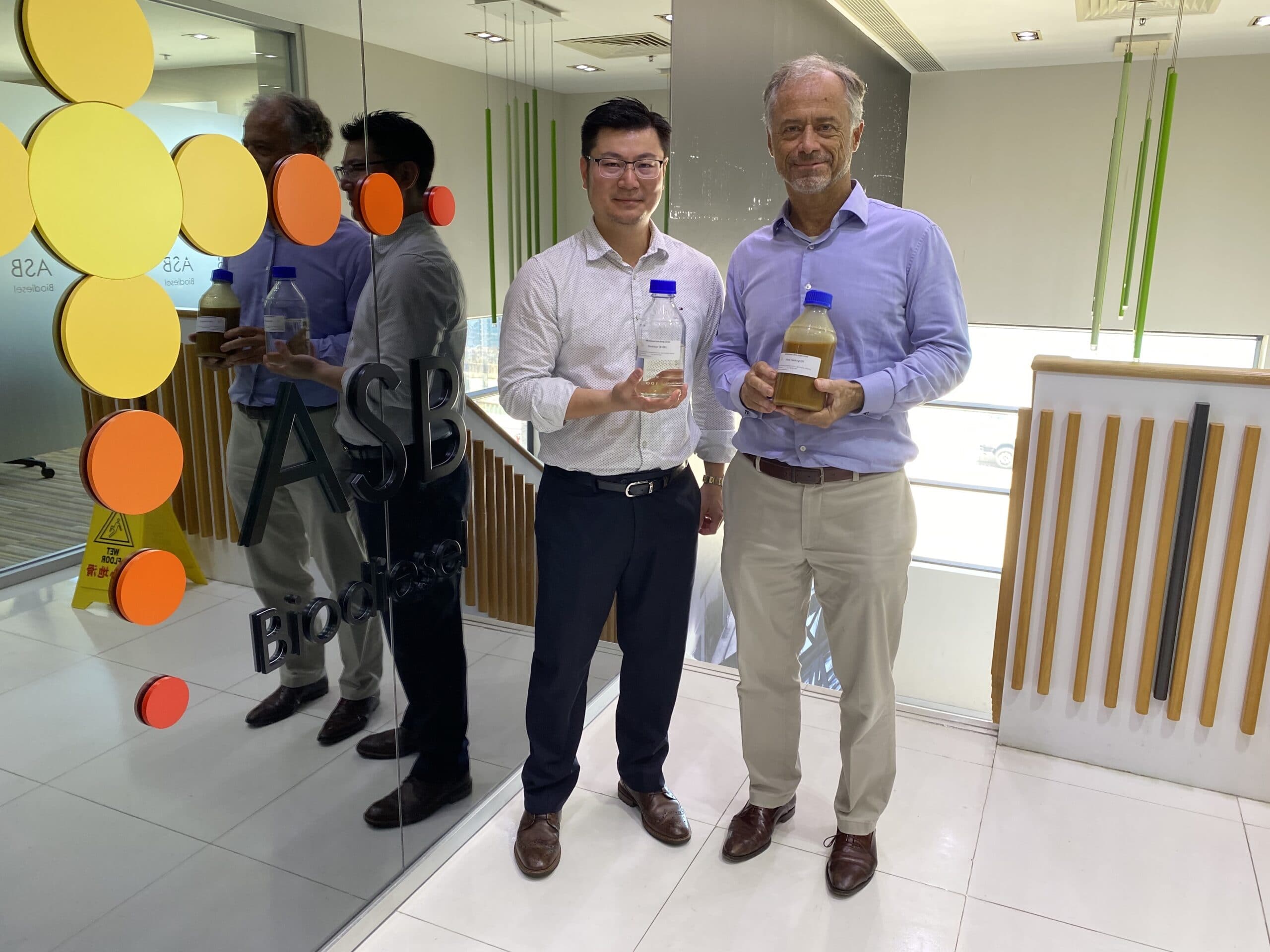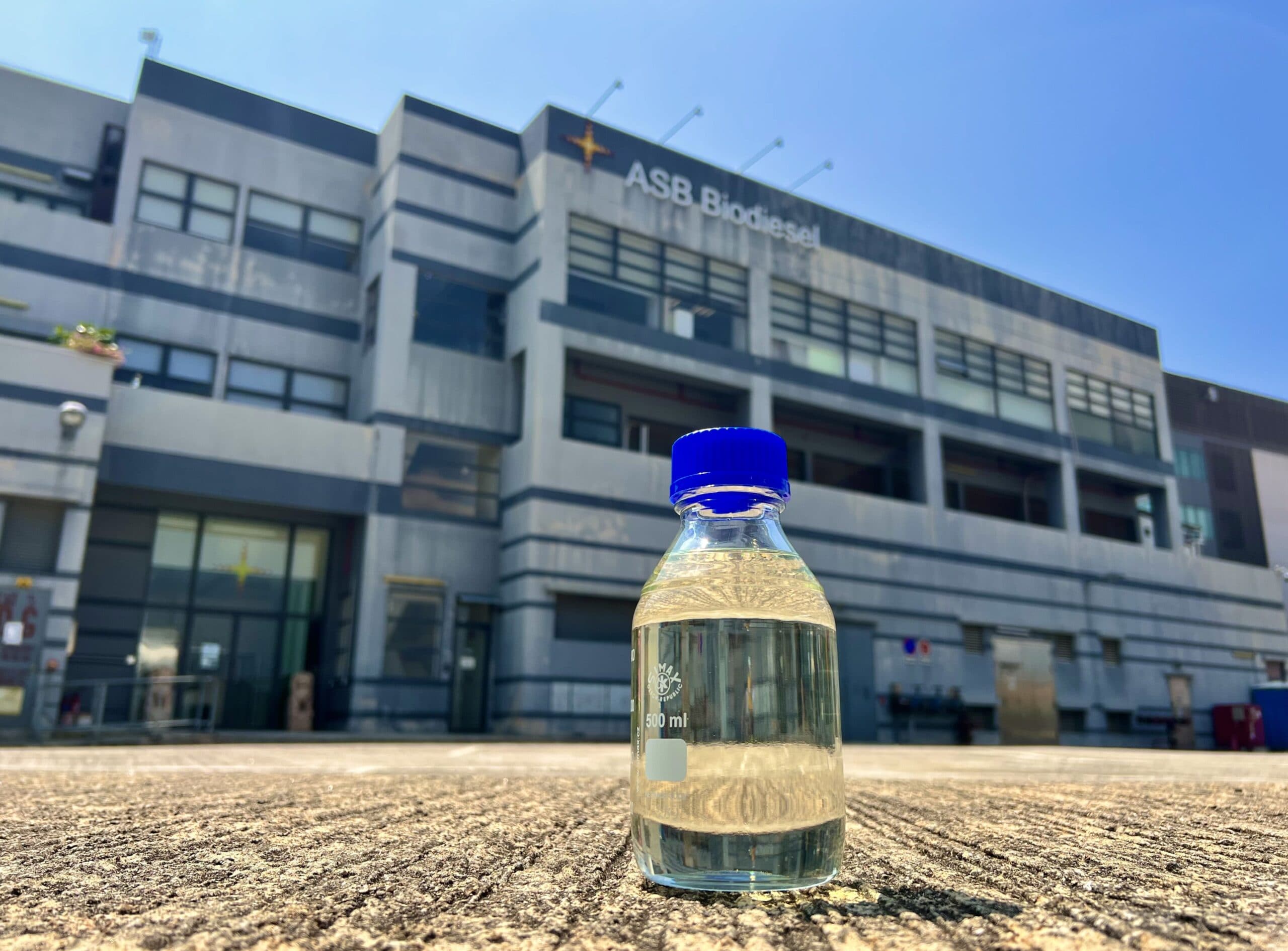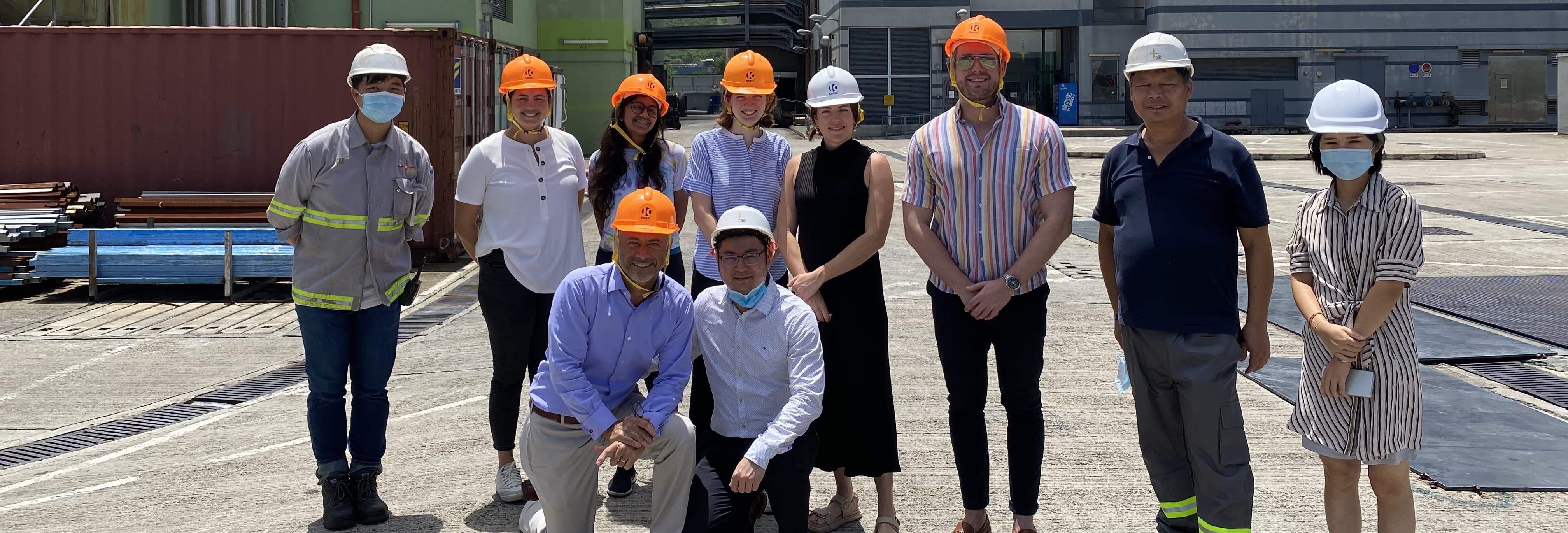
ASB Biodiesel and Sustainable School Buses
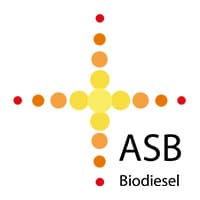
Students from around the world travel to school in buses that still run on fossil fuels. In Hong Kong for example, school buses travel more than 7 million kilometres every day. And even though 90% of commuters in Hong Kong use public transport, almost all our transport runs on fossil fuels which increase greenhouse gases, add to air pollution and damage children’s lungs.
But it doesn’t have to be this way. School buses can lead the way to a cleaner future for our children.
TASS is partnering with ASB Biodiesel and the Clean Air Network to press school bus operators to adopt sustainable, clean and healthy options by using biodiesel or electric school buses.
Biodiesel is a diesel substitute manufactured from vegetable oil. If it is made from waste cooking oil, as it is in Hong Kong, it has 85% lower carbon emissions, making it one of the lowest-carbon bus fuels available. It is an environmentally friendly fuel that can be used in school buses.
ASB Biodiesel’s factory in the Tsung Kwan O industrial estate is large by international standards – it can produce 100,000 tons of biodiesel annually. This is enough to cut diesel use in road transport by 10%, and help Hong Kong reach its net zero target. No other low-carbon solutions are immediately available for Hong Kong’s transport sector.
Some of the biodiesel ASB produces is made from waste cooking oil collected from school canteens – providing a great demonstration of how a circular economy can work.
Watch a video of our workshop ‘Biodiesel in Sustainable School Buses’ at ReThink 2022 to hear success stories of biodiesel in school buses in other cities.
